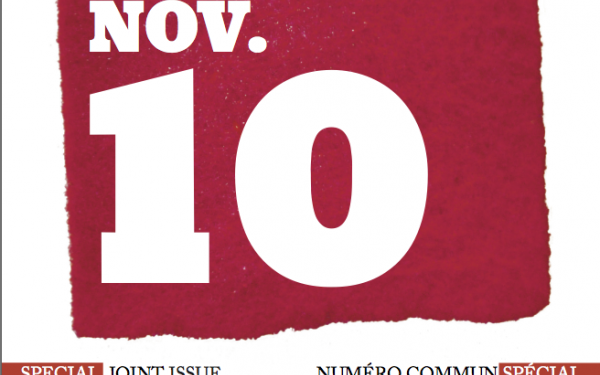To Strike or Not to Strike?
The fight against tuition increases has finally come to a head, but a great divide still exists between students who understand the issue and those who don’t.
Regardless of your political stance, in the next few days we all have to make a conscious decision on whether to join the movement or not.
Before we make that decision, we need to understand just where this movement is going, what our rights are as students, and what we can expect out of the next few weeks.
Remember,
Remember, the 10th of November
On Nov. 10, tens of thousands of students from across Quebec are expected to descend upon Montreal to take part in what is shaping up to be a historical day of action against the provinces proposed tuition fee increases.
Students from nearly every university and CEGEP across Quebec will be rolling into town to march to Jean Charest’s office in a demonstration that intends to send a clear and unavoidable message to the Premier.
“This is a province-wide movement, a province-wide demonstration, and a province-wide campaign against tuition increases,” said Concordia Student Union VP External Chad Walcott. “Pretty much every post-secondary school across Quebec will be in Montreal [on Nov. 10].”
On Nov. 3, graduate and undergraduate members of Concordia’s Arts and Science Federation of Associations officially joined the movement by voting in favor of a one-day strike mandate for the Nov. 10.
“[The strike mandate] is more of a symbolic gesture to the government to show that students really are starting to mobilize,” said Nadia Hausfather, graduate student at Concordia and active member of Free Education Montreal.
“It’s very practical because it encourages students to leave class on Nov. 10.”
Symbolic or not, a movement against tuition hikes carries no weight without student participation.
“Students need to understand that nothing can happen if they’re not involved,” said Hausfather. “Any action and any general assembly that takes place will be nonsense without their support.”
“Strikes are our strongest weapon,” said Walcott. “They’re really the only weapon we have as students to express our dissatisfaction with these issues. It’s our means of applying pressure, and showing resolve.”
It sends a clear message to the media, to the public, and even to politicians, saying,‘Now we’re pissed off, now we’re missing out on school, and we’re putting a lot of time and money on the line for change.’”
Know Your Rights
(Or Lack Thereof)
Earlier in the semester, a letter written by Concordia’s Provost David Graham and approved by Interim President Frederick Lowy was circulated throughout various departments at the university. In it, Graham asks that faculty show “flexibility and leniency” toward students participating in the day of action on Nov. 10.
“[The letter] was not a request for academic amnesty,” explains Graham. “I can’t authorize an academic amnesty, I can’t demand or impose one, and the CSU is aware of that.”
Graham points out that despite the letter, faculty are protected by their rights to academic freedom, which allows them full rights to refuse amnesty to students missing class for reasons that are not deemed legitimate by the university’s standards.
“Individual faculty members have the right to decide what they’re going to do, and how they are going to conduct their courses,” said Graham. “As long as they are operating within university regulations I cannot, nor will I override that […] It is [the faculty’s] right to say no.”
In short, this means that students are required to be in class on Nov. 10, strike or no strike. Unless you receive permission from your instructor that pardons your absence, you are responsible for whatever classes that are missed, and similarly responsible for the consequences.
“Students need to know that there is no official protection for them,” said Graham. “They are free to behave as they wish, obviously within the limits of the law, with the knowledge that there may be consequences.”
“Our Final Exam”
This Thursday is set to be a momentous event in the history of Quebec student movements.
With a head of steam gathered from successful movements like the student strikes of 2005, and rumors circulating that the government is already feeling the pressure of these movements, many are looking to the 10th as the stepping-stone to putting an end to these increases.
“Nov. 10 can be thought of as our final exam,” said Walcott.
“If we pass it we go on to the next semester, and then more mobilization and more campaigning will follow. If we don’t succeed on Nov. 10 then we fail, and that’s it.”
For Walcott, Concordia’s reputation of activism and community engagement has been lost over the years.
“It’s important that we bring that back,” he said.
“The whole world is going through big changes, and this is a historical time, so why not get in on it? Things are happening.”


_600_832_s.png)

TEST2_600_375_90_s_c1.jpg)

